Interview: Julian Gollop on Phoenix Point, XCOM, and Dynamic Systems
April 20, 2018 | 12:00
Companies: #firaxis
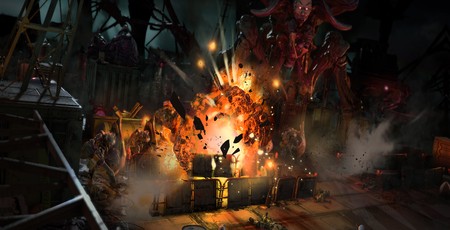
At a cursory glance, Julian Gollop's Phoenix Point looks very similar to XCOM. By this, I don't mean the series of games that commenced with UFO: Enemy Unknown, created by Gollop and his brother under the banner of Mythos Games, I mean the 2012 reboot created by Firaxis. The use of cameras, the diorama-like map designs, even the orange and blue movement pools are virtually identical to those used by Firaxis' take on alien-bashing tactics.
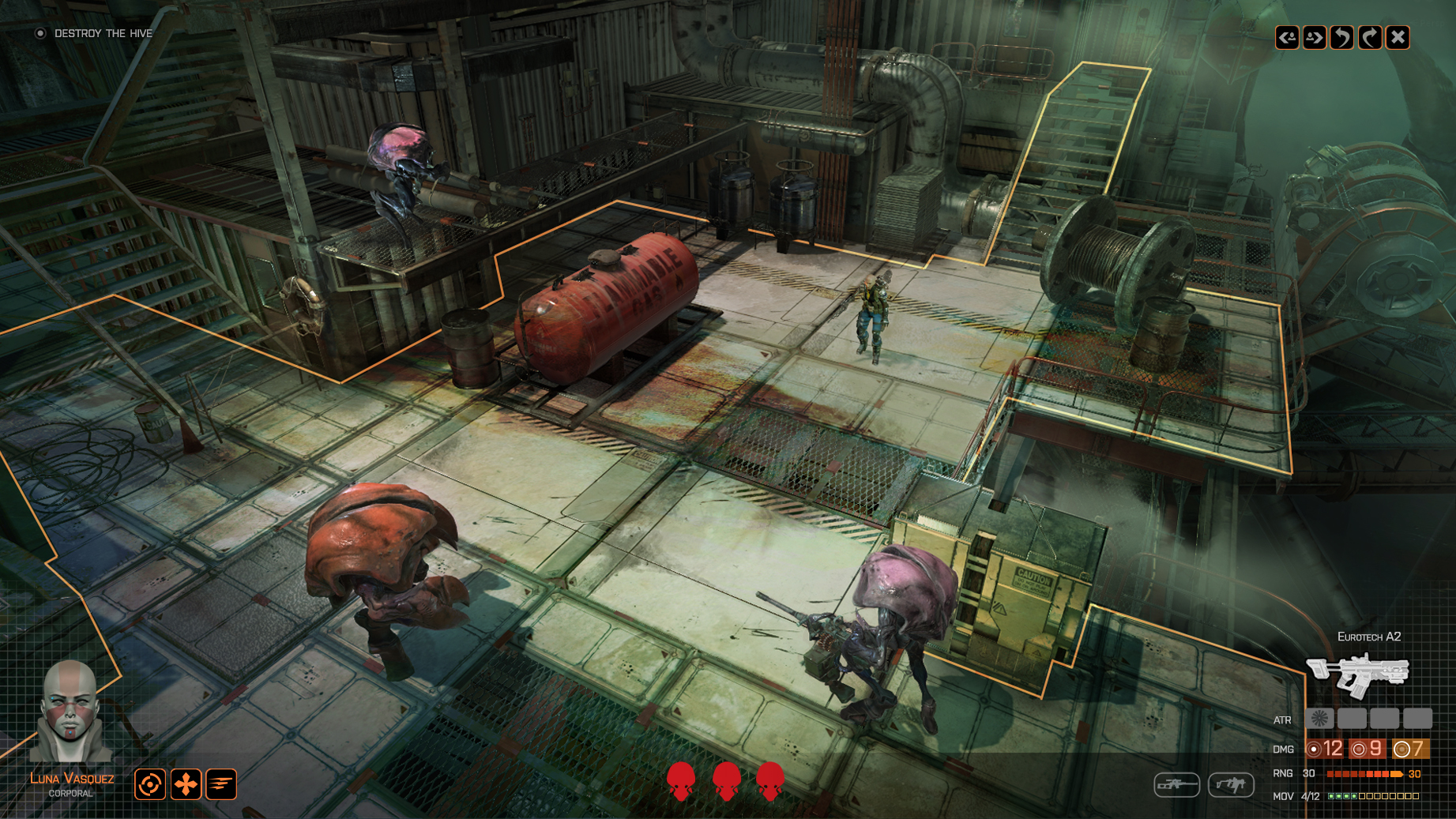
Beyond Phoenix Point's slightly grungier aesthetic, you'd be forgiven for confusing the two. 'We've have a few commenters who've taken one look at Phoenix Point and say "Ah, you're ripping off XCOM!",' says Julian Gollop, as we speak in one of the quieter corners of Tobacco Dock during London's EG Rezzed convention, 'And I thought, "But, but, but, but, but...".'
Phoenix Point certainly does borrow some specific elements from Firaxis' game, but it does so deliberately and with good reason. Gollop is a fan of the work of Jake Solomon and the Firaxis team, and is enthusiastic about what the rebooted XCOM games did better than his original series. 'They made it accessible, interesting, tense, really, really good innovation on the XCOM idea. XCOM 2 has great character customisation as well,' he says. 'The stuff that we really liked about the new XCOM, we are definitely using that, and I like the over-the-shoulder view of the firing, I really enjoy that.'
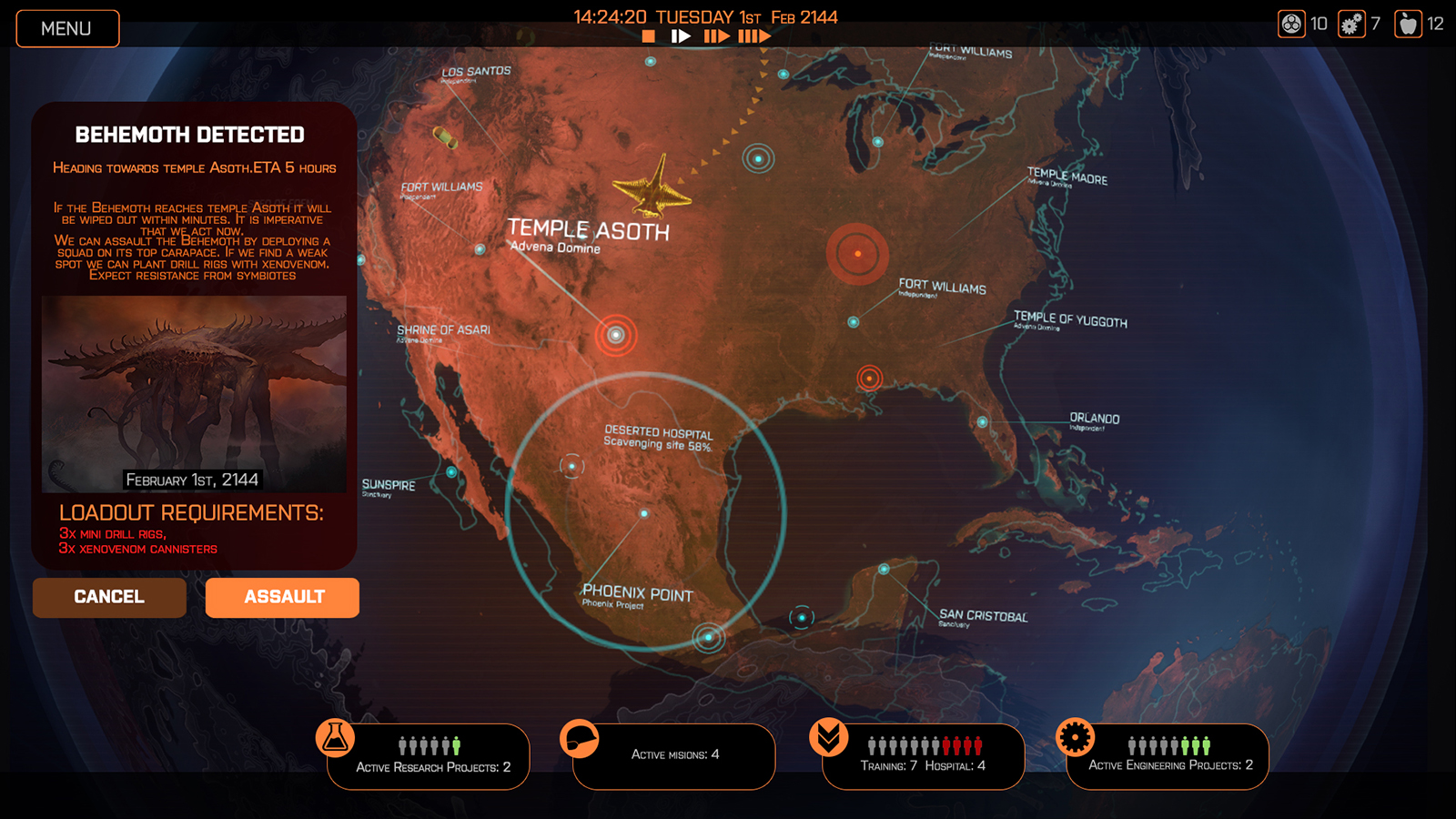
Yet these aesthetic influences are about as far as the similarities between XCOM and Phoenix Point extend. At most, they act as a layer of familiarity to ease new XCOM fans into what Gollop and the team plan to be a very different game, one that is equally inspired by some of Gollop's earlier games, particularly XCOM: Apocalpyse.
The basic premise remains typically XCOM: Aliens invade Earth and you run a covert organisation intended to thwart them. This time, however, the aliens come in the form of a virus unleashed by the melting icecaps, which infects and controls humans and animals, mutating them in the process. Indeed, mutation is a core theme of Phoenix Point; Snapshot Games hopes the player's story in Phoenix Point will be similarly complex, dynamic, and unpredictable.
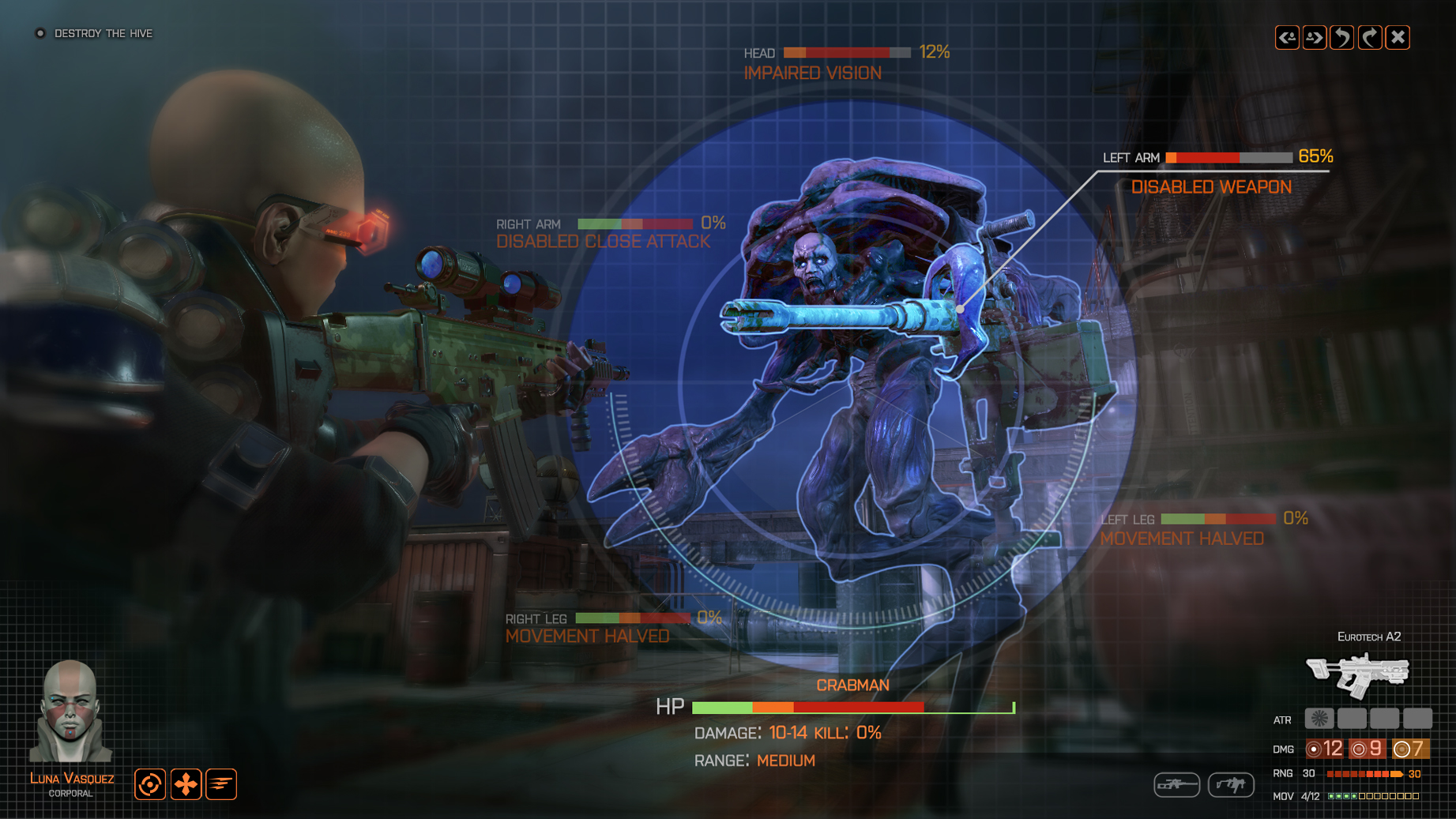
Like XCOM and UFO before it, a game of Phoenix Point plays out in two distinct phases. There is the tactical phase, where a squad of the player's operatives battle the alien menace directly in pursuit of a particular objective, and there's the strategic phase, where the player makes higher-level decisions about how to construct their base, where to deploy their operatives, and how to respond to alien moves and countermoves.
Gollop terms this latter phase the Geoscape, and it's in the Geoscape where Phoenix Point marks itself out most from the newer XCOM series. 'It's much more of a simulation of a future apocalyptic world with different [human] factions and different agendas...and it operates in a similar way to some of the systems that people are familiar with in 4X games,' Gollop says. 'These factions are controlled by an AI, they have their own objectives, they have their own internal economy, resource systems; these are all part of Phoenix Point as well.'
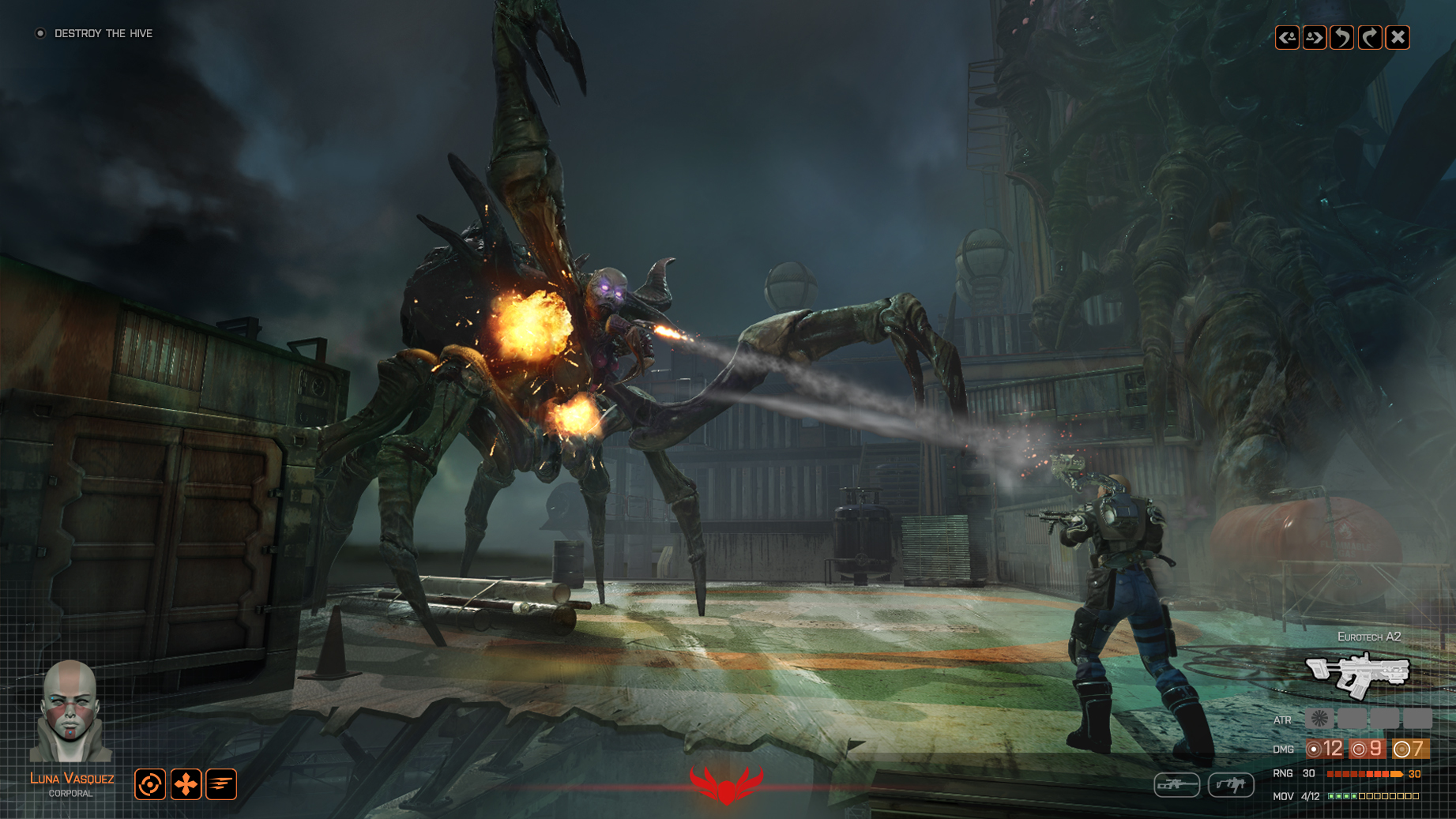
These factions are not procedurally generated. Instead, they've been hand-crafted by Snapshot Games to be highly distinct from one another in terms of their culture, their technology, and their approach to dealing with the alien menace. The Disciples of Anu, for example, is a doomsday cult synthesised from the remnants of the Earth's major religions, which believes the only way to save humanity from being wiped out is to hybridise with the aliens. 'The Disciples of Anu are building these temples, these missionary centres, these slave pits, these mutation generators,' Gollop says.
Meanwhile, the player will also have to contend with New Jericho, a military faction that wants to counter the aliens head-on and wipe every trace of them off Earth. New Jericho prioritises the manufacture of arms and restoring the satellite uplink system around the Earth.
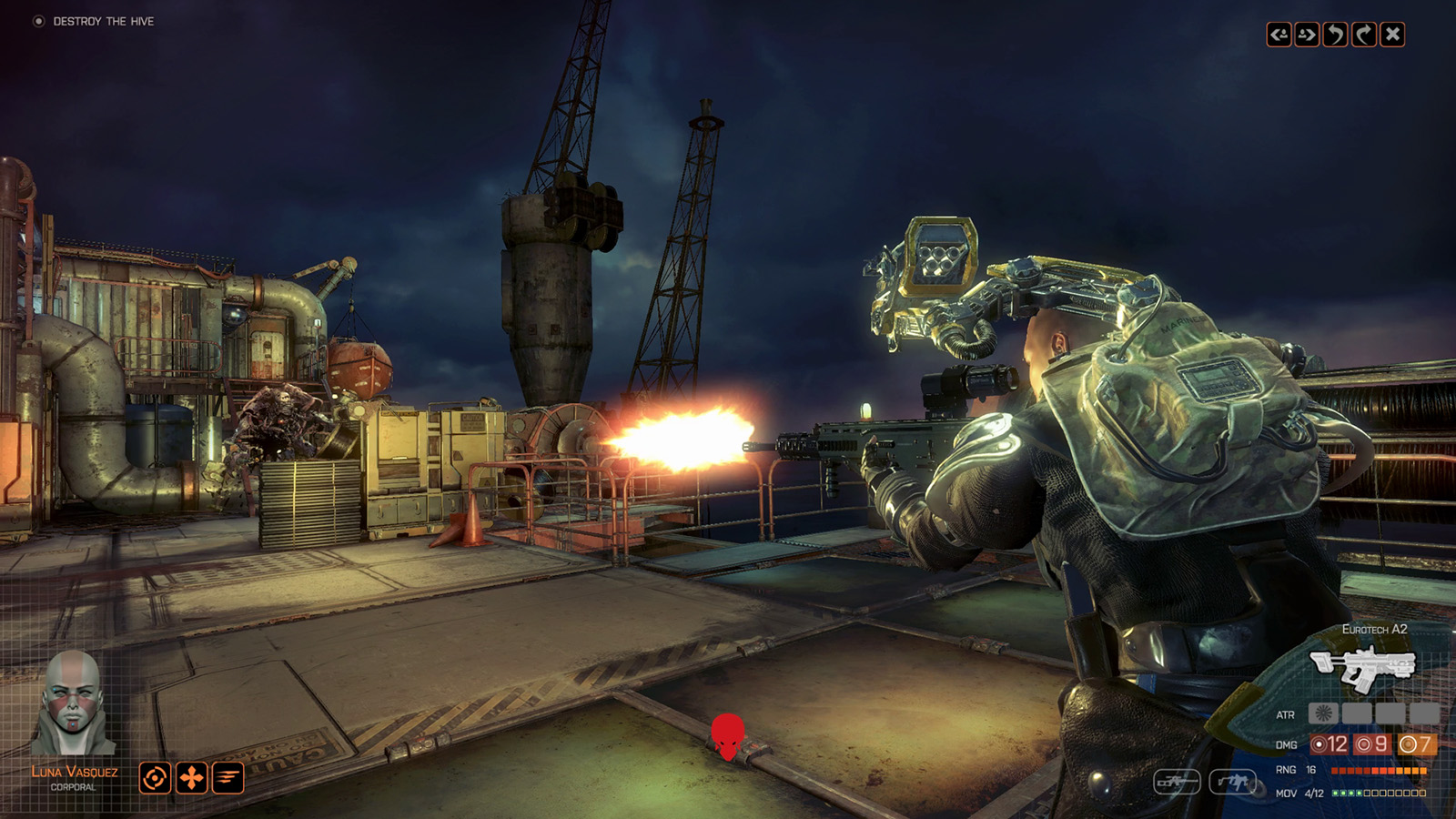
All the AI human factions will have 'havens' that they control around the map, headquarters from which each faction will execute is plans. 'They are trying to develop these havens, fortify them, protect them, in some cases fighting each other for control of precious resources, sometimes taking the fight to the aliens,' Gollop explains. 'They have diplomatic relationships with each other which can ebb and flow; in a similar way the player has a diplomatic relationship with each of these human factions, which will change over the course of time.'
Compared to the newer XCOM games, which were for the most part a global head-to-head battle between XCOM and the alien menace, Phoenix Point aims to deliberately muddy the waters of the conflict, forcing you to contend with these other factions and the aliens at the same time. The Phoenix Project is just a small part of the larger picture, and to make any reasonable headway against the aliens you'll need to find ways of exploiting the other human factions. This could take the form of allying with them, stealing from them, or taking tactical advantage of their own victories and defeats against the aliens and each other.
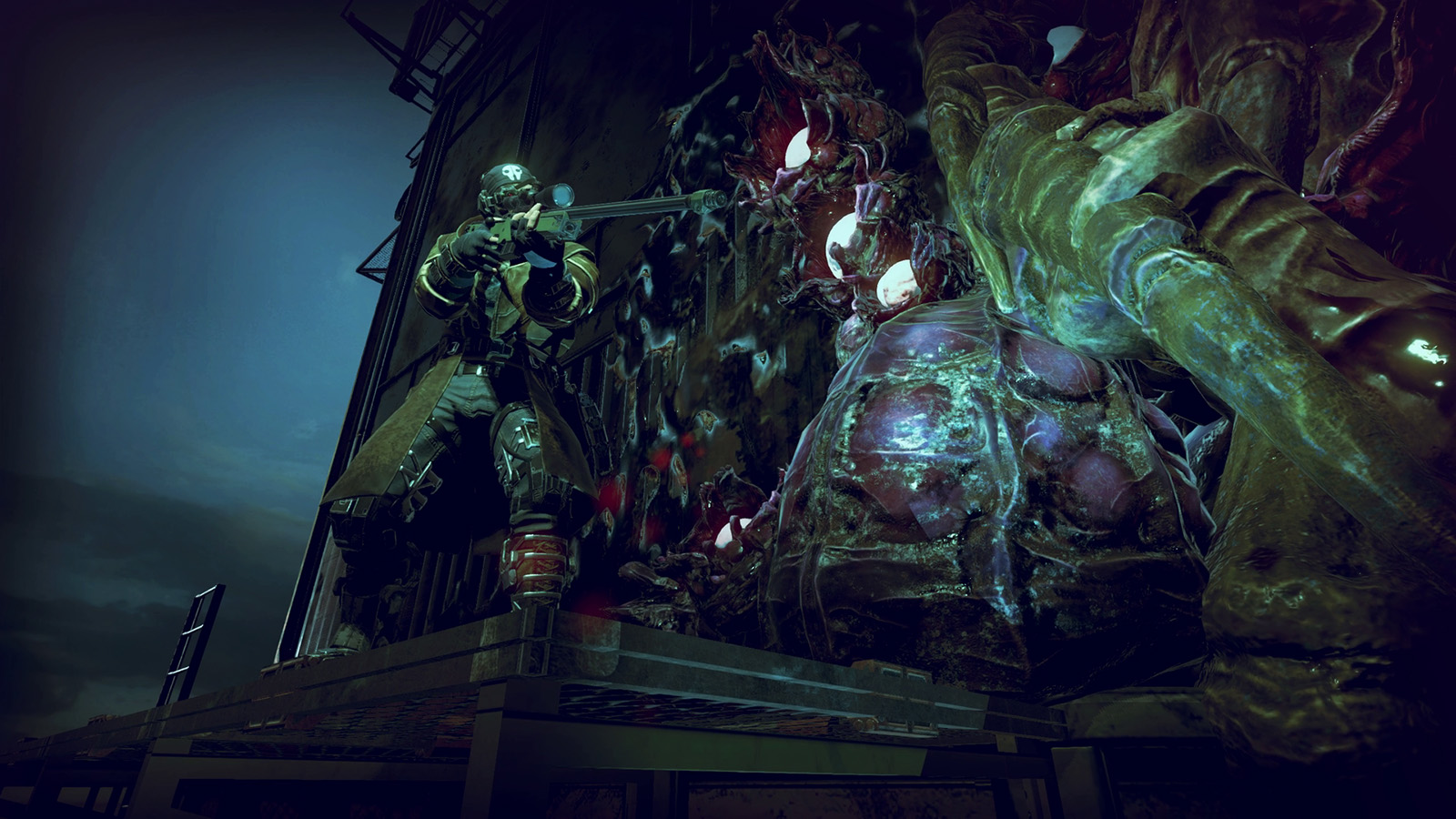
It isn't this more elaborate human element that Snapshot hope will make Phoenix Point mechanically distinct. The aliens themselves will shift and evolve as the game progresses. Remember we talked about mutation as a central theme of Phoenix Point? Well, one of the key mechanical differences in Phoenix Point's tactical battles is that the aliens will be constantly mutating and evolving. Gollop cites a particular subset of aliens, which have mutated from crabs, as an example:
'Basically the aliens consist of an archetype. In the case of these little crab-like type creatures, they're sort of a combination of human and arthropod DNA. They have a sort of human sentience, but they have some crabby bits which they try to adapt. Even then they have dramatically different appendages and stuff. One's got this carapace-like shield with a big claw, another might have a gun with an organic grenade launcher. Some have got spitting heads, some have got biting-poison heads. Some have got more heavy armour, some have less heavy armour.
'So you have all these different bodyparts which we can mix and match, and they have different functions, and we can create sort of unique mutations for these creatures. And the larger monsters have even more variation in them. They can be quite dramatically different in how they operate.'
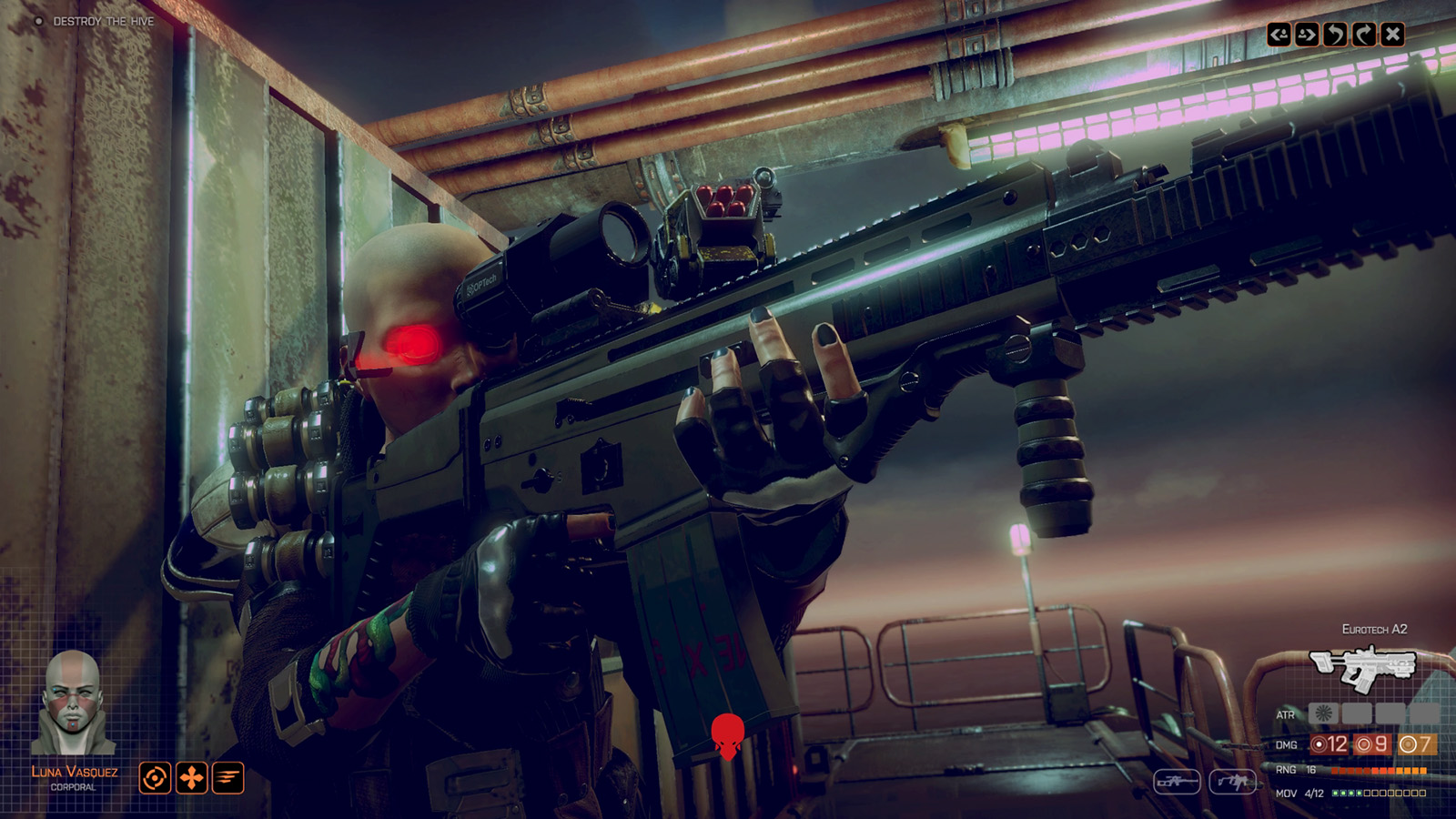
Phoenix Point's aliens are also different in terms of how they view the player, with motivations that are somewhat more complex than simply wanting to wipe humanity out. 'Part of the alien DNA, which is part of this Pandora virus, is this special receptor in the brain, which can communicate telepathically. Without giving too much of the story away, it's quite important for the way the aliens are organising.' Some enemies, such as what Gollop refers to as 'brain-suckers', will use this ability to take direct control of your units. 'They are very interested in abducting them for various purposes,' Gollop adds. 'Your base locations can be revealed by some of your captured guys who are taken by the aliens. You can go and rescue them, they will get mutated and they will be different and so on.'
Phoenix Point has put Gollop back at the forefront of game development, after what he describes as 'years in the wilderness' - referring specifically to his six years at Ubisoft Sofia in Bulgaria. 'It's true!' he exclaims when I try to argue the point. 'My main achievement at Ubisoft was Ghost Recon: Shadow Wars, which was a launch title on 3DS, which I was quite happy with. But mostly the stuff I did there was...the less said the better.'
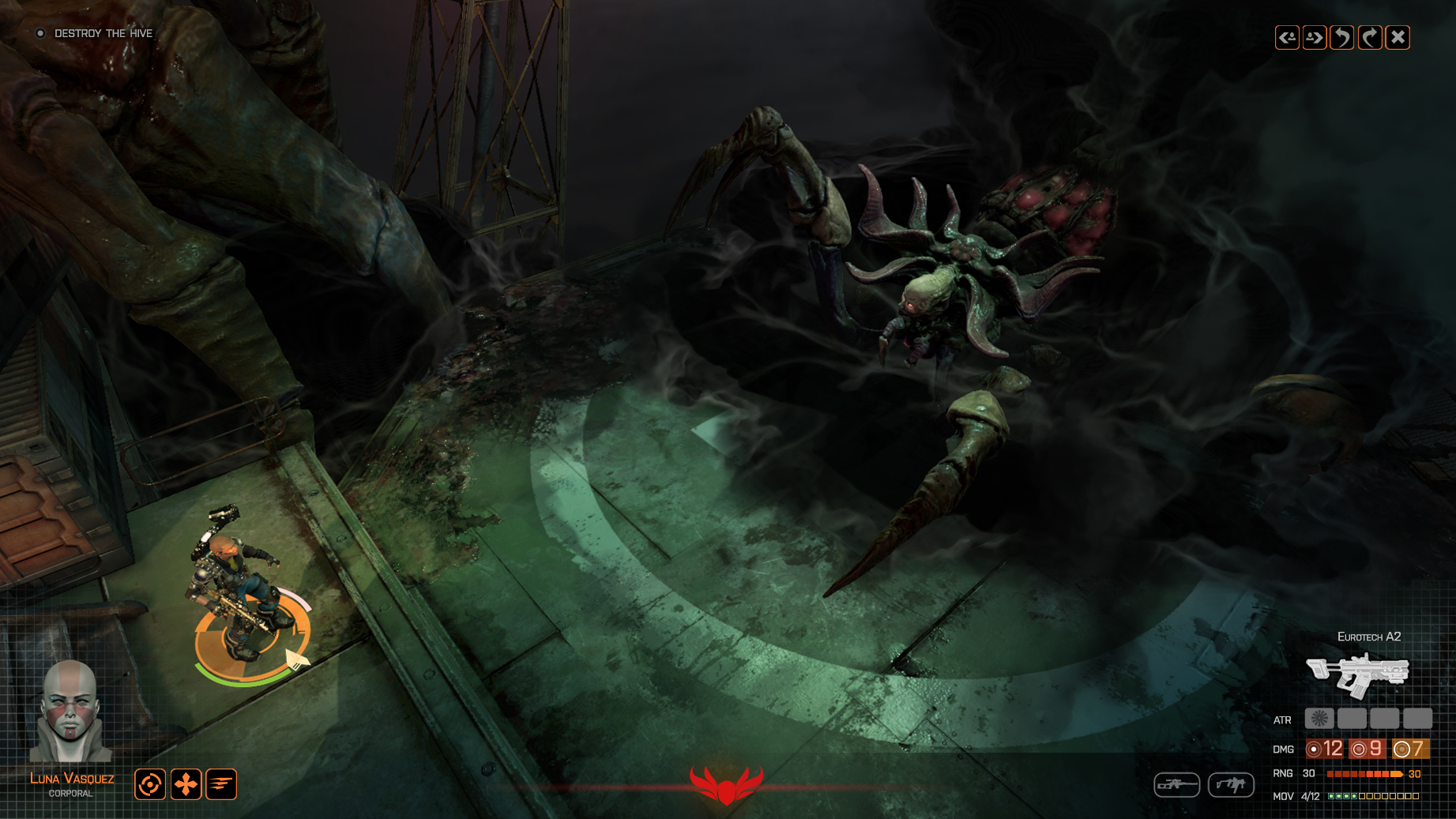
The success of Firaxis' XCOM, however, brought a new surge of interest in Gollop's previous work. 'A few people have said they've gone back to the original XCOM after playing the new XCOM, which must have been a bit of a shock for them,' he jokes. Not long after, Gollop began exploring those older ideas himself, in the form of the multiplayer fantasy tactics game Chaos Reborn. Released in 2015 after a successful Kickstarter campaign, the game was critically well received but only a modest commercial success.
By comparison, Phoenix Point is already doing very well, bringing in over $100,000 a month on pre-orders. Yet while players may go into Phoenix Point, having been fans of Firaxis' XCOM, Gollop is hoping they will leave it having enjoyed a very different – and altogether more terrifying experience. 'I want them to both shit their pants and yet bear the burden of responsibility [of] saving human civilisation,” Gollop concludes. 'Yeah, I guess that's it.'

MSI MPG Velox 100R Chassis Review
October 14 2021 | 15:04


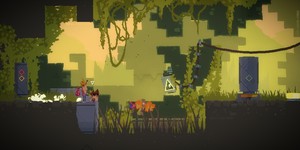






Want to comment? Please log in.